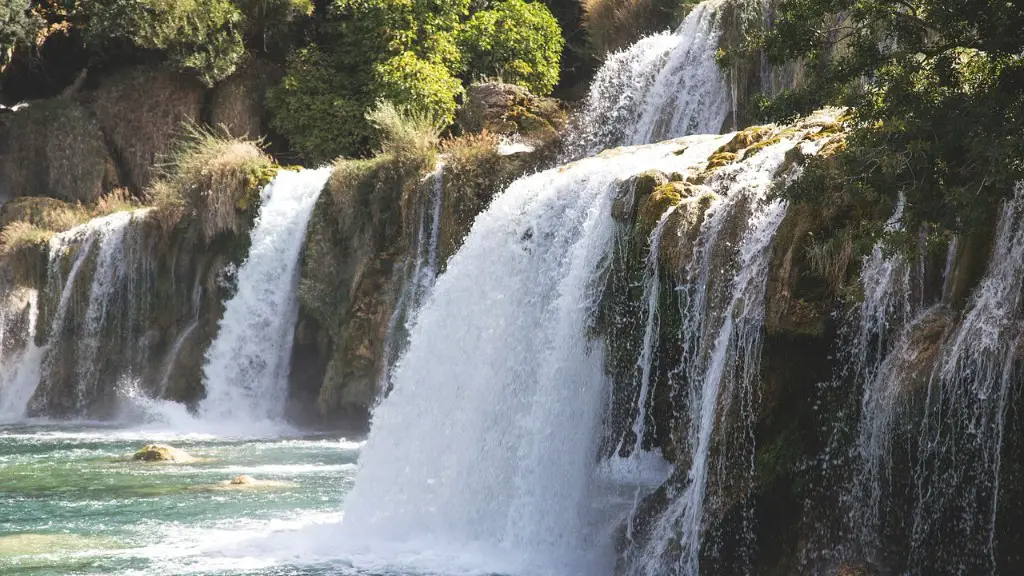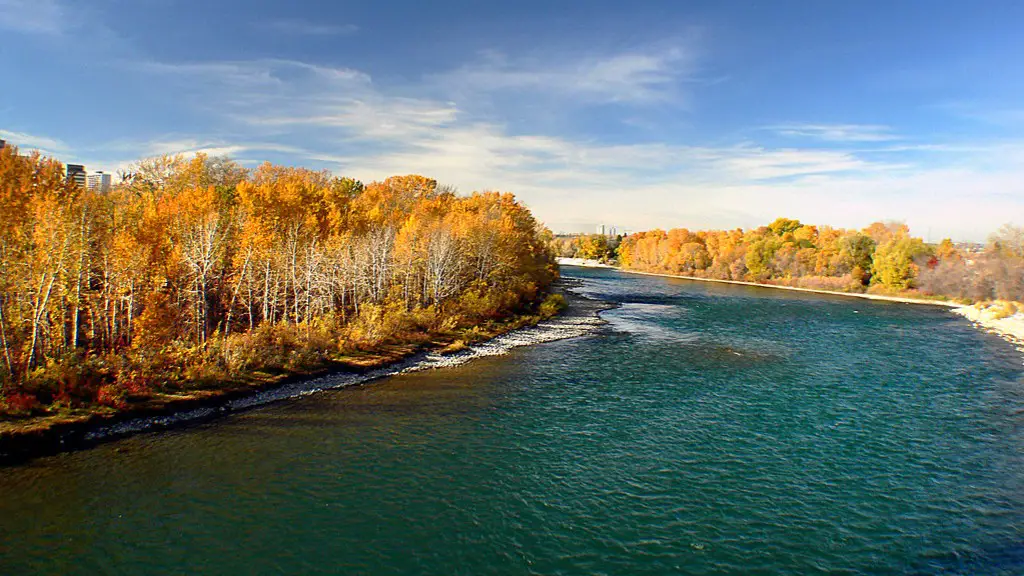The Yangtze River is the third longest river in the world and the longest river in China. It is essential to the economy, ecology, culture, and history of the country, for many reasons.
Beginning in the Qinghai-Tibet Plateau and running for more than 6,000 kilometers, the river meanders through 11 provinces and autonomous regions and ultimately empties into the East China Sea.
Its importance to China can be seen in the economic, ecological, cultural and historic impact it has had on citizens’ lives. It is the lifeblood of China’s economy, allowing farmers to bring their goods to market, facilitating industrial development and providing transportation routes that help goods reach foreign markets.
The Yangtze also provides more than 10 million people with a primary source of drinking water and supports a diverse ecosystem. In fact, it is home to around 40 percent of China’s fish species and has been called “the greatest freshwater fish gene pool”. These species are both important to the area’s economy and key to the protection of biological diversity.
Additionally, the Yangtze is an important cultural symbol for the Chinese people and represents their long and rich history. Much of Chinese literature and folklore is based on stories about the river and its people. Over the centuries, it has become an important part of the national identity.
The river also has an important strategic significance. The Three Gorges Dam, one of the world’s largest hydroelectric projects, is located on the Yangtze and provides energy and flood control. The river also serves as an important defensive barrier, helping to protect China’s eastern territories.
All of these factors make the Yangtze an important part of China’s history and culture, and its future economic, ecological and cultural viability. It is a vital part of Chinese life and its importance is undeniable.
Environmental Importance
The Yangtze River is home to a variety of endangered species, such as the Chinese alligator, the finless porpoise, the Chinese paddlefish and the baiji. The river is important for providing a habitat for these species and for the rest of its biodiversity. This richness is also important for maintaining China’s national heritage, as the river is home to many animals that are considered emblematic of the country.
The Yangtze also helps to maintain a delicate ecosystem balance by providing water for agricultural production and distributing nutrients throughout the surrounding region. It also helps to prevent floods, replenishes soil fertility, and provides a source of hydroelectric power.
The river carries substantial amounts of sediment to the East China Sea, which helps to rebuild the coastline and protect the continent from coastal erosion. This also helps to stabilize the river’s water level and, consequently, the water supply in the local reaches of the Yangtze, essential for both power generation and irrigation.
The Yangtze Basin is the most heavily polluted river basin in China, which has an adverse effect on the waterbody’s aquatic life, worsening water quality and putting local populations at risk. As a result, China has implemented a series of laws and regulations to ensure better water quality and reduce human impacts on the river.
The government has also established a series of parks and conservation areas along the Yangtze River to protect the biodiversity of the region and to raise public awareness of its importance. These parks have helped to increase public awareness of the river’s importance and have contributed to a better understanding of the need to protect the river.
Economic Impact
The Yangtze River plays an important role in the economic development of China. It is an important transport route and energy source, with various river ports, locks, dams and hydropower plants. This infrastructure supports the transport of goods and passengers, as well as providing essential energy to power the country. It also supports the production of fertilizers and other chemicals.
More than 400 million people live in the Yangtze River basin and depend heavily on the river for their livelihoods. The region is home to large cities, industrial and agricultural areas, as well as many rural areas. The production of food, textiles and chemicals, as well as other types of manufacture, is an important part of the local economy.
The river also provides a valuable resource for fishing, especially for the millions of fishermen living along its length. Fisheries in the basin provide an important source of protein for local populations. In the area around the Three Gorges Dam, fish populations have recovered significantly, which has had a positive effect on local communities.
The Yangtze’s potential for economic development has been realized in the shape of tourism. It is a popular destination for domestic and international travellers, who are attracted to its diverse geography, unique cultures and spectacular scenery. There are now numerous theme parks, luxury resorts and hotels, as well as scenic cruises on the Yangtze.
Social and Cultural Significance
The Yangtze River is an important symbol in Chinese culture and folklore. It is a source of pride for the Chinese people, representing their collective history and culture. It is honoured in literature and art, and has been an important part of Chinese life for centuries.
Various legends, stories and poems celebrate the river and its unique ecosystem. It has been immortalized in the long epics, such as “The Romance of the Three Kingdoms”, and its heroic characters, such as Guan Yu and Sun Wu Kong, are well known in Chinese culture.
The Yangtze River has also been a source of inspiration for Chinese culture, religion and philosophy. Taoism, Buddhism and Confucianism, the main traditional Chinese philosophies, all took hold during the Yangtze’s heyday. It has been a source of spiritual and religious inspiration, and many temples and monasteries dot its banks.
Due to its long history and its geographical importance, the Yangtze River has also played an important role in Chinese politics. It has historically been seen as a barrier to invading forces, and its strategic position has been of great importance to the Chinese governments for centuries.
Impacts of Modernization
Modernization has had a significant impact on the Yangtze and its inhabitants. Although it has helped to improve living conditions and reduce poverty, it has also had a negative impact on the environment and the traditional cultures of the region.
The Three Gorges Dam is an example of the effects of modernization on the river. It has helped to regulate water levels and reduce the impact of floods, but it has also caused the displacement of tens of thousands of people and the destruction of important cultural and archaeological sites.
Modernization has also increased pollution in the Yangtze, causing serious environmental problems. Industrial waste, agricultural runoff and untreated sewage are all contributing to the deterioration of the river’s water quality. This has affected the health of the river’s inhabitants and threatened the biodiversity of the region.
The impact of modernization on the Yangtze has been both positive and negative, but it is important to remember the importance this river has for the people of China. In spite of its problems, it continues to be a source of cultural pride, economic development and spiritual inspiration.
Preservation Efforts
The Chinese government has implemented a number of measures to protect the Yangtze and preserve its ecological integrity. It has passed laws and regulations to reduce pollution, prohibit harmful activities and increase public awareness of the river’s importance.
Efforts have also been made to restore damaged environments and reduce the impact of human activities on the river. The government has established reserves, conservation areas and nature reserves along the course of the Yangtze in order to protect its biodiversity.
Reforestation programs have been introduced along parts of the river in order to reduce soil erosion and restore the fertility of the land. Actions have also been taken to reduce deforestation in the region, and to restore mangroves and wetland habitats.
The government has also implemented a number of measures to improve water quality and reduce pollution. It has introduced stringent regulations for wastewater treatment and has increased the use of renewable energy sources.
All of these efforts have had a positive impact on the Yangtze and its inhabitants, and continue to be important for the protection of the river and its biodiversity.





